David Burkette wins Senate District 26 seat in landslide
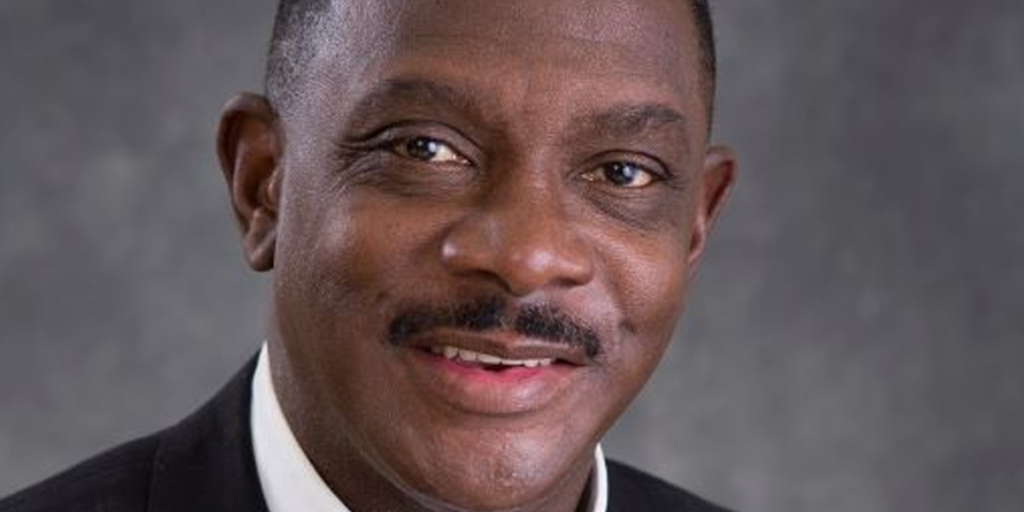
Montgomery City Councilman “Coach” David Burkette won the race for Alabama’s Senate District 26 seat Tuesday night in a landslide victory, besting Republican Darrell “DJ” Johnson. The special election for the seat was called by Gov. Kay Ivey after former Sen. Quinton Ross left it vacant when took over as President of Alabama State University. Burkette took home 3,873 votes, roughly 89 percent of voters, while Johnson garnered only 449 votes. He thanked his supporters on Facebook after his victory: I would like to thank everyone who supported this campaign for Senate District 26. Whatever role you played in achieving this victory, I truly appreciate everything. Go Team Go!! Now, We have to go to the poll and vote, so I can win the June 5, 2018 Election. I need your vote and support. Stay Connected to my Facebook page for updates about ways that we can work together. “Like and share my page with everyone in Montgomery County. Burkette’s victory will be short-lived as the terms expire in November and he must seek re-election in order to serve a full term. He’s already slated to face fellow Democrats Rep. John Knight, who he previously defeated in a run-off, and Montgomery City Councilman Fred Bell in the June 5 primary for the seat. The winner of that race will go on to face Johnson in the Nov. 6 general election.
Republican Parker Moore wins special House District 4 race

Republican Parker Moore won the special election for House District 4 Tuesday evening, defeating Democrat Juanita Healy and Independent Polan “Pete” Willis in the race fill the vacancy created when former Rep. Micky Hammon pleaded guilty to felony mail fraud. House District 4 includes Limestone and Morgan counties. Following his win, Moore posted a thank you note to his supporters on Facebook. Thank you District 4! I appreciate the trust and confidence you have shown in me. I look forward to representing you as a conservative Republican. Tonight is just one step; we have one more election to go on June 5th! Moore’s victory will be short-lived as the terms expire in November and he must seek re-election in order to serve a full term. He’s already slated to face fellow Republican Tom Fredricks in the June 5 primary for the seat. The winner of that race will go on to face Healy in the Nov. 6 general election. Independent Willis will join the two should he meet the signature requirement necessary to be included on the ballot.
Donald Trump pays tribute to fallen officers in emotional ceremony
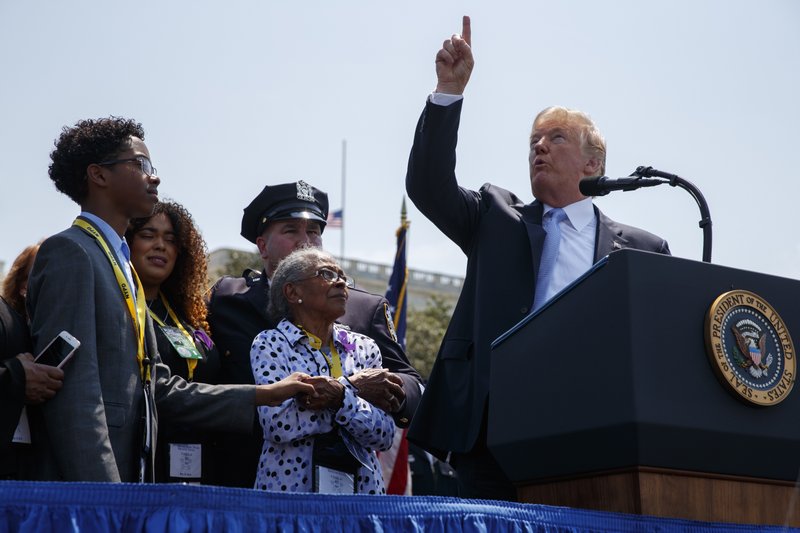
President Donald Trump paid emotional tribute Tuesday to fallen law enforcement officers and the loved ones who carry on without them, saying those who wore the uniform “were among the bravest Americans to ever live.” “They made the ultimate sacrifice so that we could live in safety and in peace,” Trump said. Trump, who likes to project an image of strength and has been criticized for failing to bring the nation together at times of tragedy, made a rare showing of public empathy as he shared the stories of some of the families gathered in the crowd. Near the end of his speech, he invited onstage the elderly mother and other loved ones of a slain police officer from his native New York City. Officer Miosotis Familia, a mother of three, was killed in July 2017 after being shot in the head by a man who fired into a parked police vehicle in the Bronx. The gunman was later fatally shot by police. “I’d like to have this family,” he said, as he urged them to join him. Trump joked that he had promised not to reveal the age of Familia’s mother, Adrianna Valoy, but that she climbed the stairs better than he did. Trump turns 72 next month. “So I promised that I wouldn’t tell you that she’s 90 years old, but, you know what, she is really something, right?” he told the audience. “You look like 55 maybe, 55. Boy, I’ll tell you what. You got up those stairs better than I did.” After inviting Familia’s police partner to say a few words, Trump told her children how proud their mother was of them. “She’s looking down, and she’s so proud of you. She’s so proud of you. And you are great,” Trump said. “Your mom’s legacy will never, ever die. You have good genes. Right? Good genes. The best genes I’ve ever seen.” The president, who made law and order a centerpiece of his presidential campaign, also used the yearly tribute at an outdoor memorial near the Capitol to press Congress to prioritize border security. He said that includes ending policies that allow individuals he described as “violent criminals” back onto the streets. Trump issued the plea after speaking about Border Patrol agent Rogelio Martinez, who died last year from injuries suffered while he and his partner were responding to reports of unknown activity near a border town southeast of El Paso, Texas. Trump said government’s first duty is to protect its people and that the Department of Homeland Security, which includes the Border Patrol agency, is “on the front lines of this incredible, heroic fight.” “That is why we are calling on Congress to secure our borders, support our border agents, stop sanctuary cities and shut down policies that release violent criminals back into our communities,” he said. “We don’t want it any longer. We’ve had it. Enough is enough.” Republished with the permission of the Associated Press.
Democrats seek counterweight to Donald Trump’s message in 2020

Grappling with the realities of President Donald Trump’s reign, Democrats are trying to offer a counterweight to the president’s message — without making it all about Trump. An annual conference organized by a prominent Democratic think tank Tuesday included an early glimpse at some of the Democrats plotting a challenge to Trump in 2020. But it also laid bare some of the challenges Democrats face in opposing a president whose presence has been all-consuming and in developing an alternative agenda to reach voters who turned to Trump in 2016. “What they want to hear about is the economy and their plans for it. They don’t want to hear about Donald Trump every single minute,” Sen. Amy Klobuchar, D-Minn., said at the Center for American Progress’ Ideas Conference. “We resist, but we also insist on a better way forward.” The lineup at the daylong conference featured appearances by several potential 2020 candidates, including Klobuchar, Sens. Bernie Sanders of Vermont, Cory Booker of New Jersey and Elizabeth Warren of Massachusetts. Also speaking: former Housing Secretary Julian Castro and current New York City Mayor Bill de Blasio. In the lead-up to the 2018 midterm elections, Democrats have pointed to growing activism since Trump’s election, from the women’s march after his inauguration to a student movement in support of gun control measures following the deadly school shooting in Parkland, Florida. And they have captured special election victories in Alabama, electing Democratic Sen. Doug Jones, and in western Pennsylvania, helping Democrat Conor Lamb overcome millions in Republican expenditures in a GOP-leaning district. Democrats are hoping for a “blue wave” in the midterms to recapture one or both chambers in Congress, which they have said would serve as a precursor to ousting Trump from office. “The reason why we don’t have Trumpcare today,” said Gillibrand, referring to the president’s failed attempt to overhaul the “Obamacare” system, “is because the grassroots stood up, stood tall and said, ‘No.’” But the party is still dealing with tensions on how far it should move to embrace more liberal policies on the economy and health care in response to Trump. Sanders, who battled Hillary Clinton for the party’s nomination in 2016, rattled off a litany of liberal causes, including the need for a single-payer health care system, a $15-an-hour minimum wage, reproductive rights and universal child care. But he pointed to the role of the “oligarchy in this country” as the nation’s most central challenge, a movement he said was leading to “a government of the few, by the few, and for the few.” “It is so important that we set big goals and we not be afraid of that,” said de Blasio, who announced plans for the New York Police Department to “overhaul and reform” policies related to marijuana enforcement in the next month. Castro, the former HUD secretary under Obama and the former San Antonio mayor, said the party needed a “new blueprint” that would make universal prekindergarten a reality, provide free college for at least the first two years and protect hundreds of thousands of young immigrants from deportation. One of the critiques of Clinton’s 2016 Democratic presidential campaign was that it failed to present a coherent argument on what the party would stand for under her watch. Trump, meanwhile, successfully distilled his message into his slogan, “Make America Great Again,” and narrowly defeated Clinton in Midwestern states like Michigan and Wisconsin that had been safe Democratic territory. Sen. Sherrod Brown, D-Ohio, noted that Trump claimed victory in his home state, a perennial presidential battleground, by nearly 9 percentage points in 2016, saying the president won in “communities he had no business winning.” “I think workers in my state are looking for somebody in elected office to talk about the dignity of work, to talk about whose side are you on, to talk about why work matters,” Brown said. “I don’t hear that enough from elected officials.” Neera Tanden, the center’s president and a longtime Clinton adviser, said that while Trump represents “an unprecedented threat to our values and our norms,” Democrats cannot simply resist the president and his policies but instead need to provide an alternative to his agenda. The event was attended by a number of financial donors, political strategists and activists who are beginning to assess what is expected to be a massive field in 2020, spurred in part by Trump’s sluggish public approval ratings. Robert Wolf, a major Democratic donor who attended the conference, said the party was “starting to build a narrative of things we stand for,” as opposed to simply opposing Trump at every turn. “We have to make sure we’re the party of ‘for things,’” Wolf said. Republished with the permission of the Associated Press.
Study: Despite modest income, teachers pay for class needs

Every year Anna Graven dips into her modest teacher salary and spends her own money to buy bulletin boards, pencils, paper, highlighters and tissues for her high school students in Oklahoma City. So do almost all of her colleagues across the nation. Nearly all public school teachers report digging into their pockets to pay for school supplies, spending nearly $480 a year, far more than the federal $250 tax deduction available to teachers, according to a study by the National Center of Education Statistics released Tuesday. The findings come as teachers across the country are walking out of classrooms to protest low pay and demand pay raises. Helping teachers pay for classroom supplies was a key demand during the Arizona teachers’ strike. Ninety-four percent of public school teachers say they spent their own money on notebooks, pens and other supplies in the 2014-15 school year without reimbursement, according to the study. The average amount spent was $479. About 44 percent spent $250 or less, while 36 percent spent $251 to $500. Teachers who spend their personal money on children’s classroom needs are able to reduce their taxable income by $250. That amounts to roughly $30-to-$60 in savings for each teacher, according to the American Federation of Teachers, a relatively small sum that is still regarded as a token of appreciation by educators. Teachers pushed back strongly last year when the tax bill passed by the House called for eliminating the deduction altogether. The Senate version of the bill, meanwhile, sought to raise the deduction to $500. In the end, the two chambers reached a compromise, and the deduction remained unchanged. Randi Weingarten, president of the AFT, said Tuesday that the study demonstrates a lack of funding of public schools in America. “Educators want to help children; that is why as long as their kids lack the essentials, educators will continue to dig deep, while fighting the defunding and underinvestment that created this crisis in the first place,” Weingarten said in a statement. “There is no other job I know where the workers subsidize what should be a cost borne by an employer as a necessary ingredient of the job.” The study also found that teachers in high-poverty schools were more likely to spend personal money on school supplies. Eighty-six percent of teachers in schools that don’t participate in free or reduced lunch school program said they paid for classroom needs, while around 94 percent to 95 percent of teachers in schools that did participate in the programs said they paid for classroom needs. Graven, who teachers American literature at an Oklahoma City high school, says the school provides very limited supplies and she and her colleagues are forced to pay out of pocket. “We do what we need to do for our students and for us to be able to do our job,” Graven said. “It would be less of a burden if we were also paid a livable wage.” Graven said a teacher like her, with a bachelor’s degree and 18 years of experience, is earning around $42,000 a year. At times Graven has contemplated going into a new profession that pays better. “It’s not an easy job, it’s very stressful and you think, ‘Is it all worth it?’” Graven said. “And then there will be that student that will make you realize that it is worth it.” Some teachers have even gone online to launch crowdfunding campaigns. The web site Gofundme.com has thousands of pages where teachers or activists are raising money to help pay for classroom supplies. The company has even compiled a guidebook to help teachers build effective campaigns, according to Heidi Hagberg, a spokeswoman for Gofundme. Republished with the permission of the Associated Press.
Scott Dawson criticizes grant to LGBT group
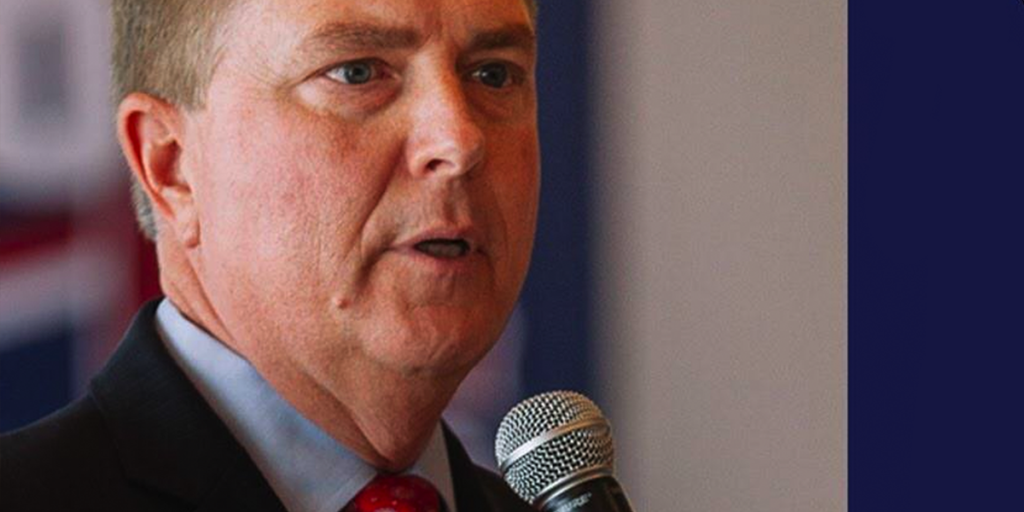
An evangelist running against Alabama Gov. Kay Ivey is criticizing anti-violence grants the state gave to a support organization for gay and transgender individuals. Scott Dawson in a Tuesday press conference said Ivey “betrays our values” with the grants worth nearly $800,000 to Free2Be. Dawson is challenging Ivey in the Republican primary. The nonprofit runs several support centers in the state. Grant paperwork indicated the money is to be used for violence prevention and support services. A telephone message to Free2Be’s director was not returned. An answering machine message indicated the group is temporarily closed. Ivey called the accusation “nonsense.” The GOP governor said while she doesn’t agree with the group’s “values,” the grant is entirely paid for with federal dollars and dates back to 2014. Republished with the permission of the Associated Press.
Birmingham’s Randall Woodfin takes a stand against racism in his city
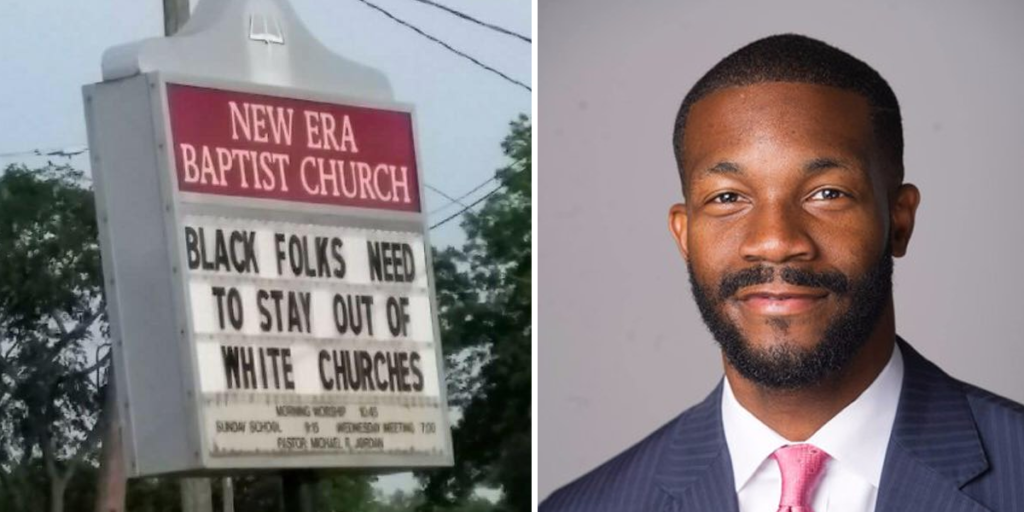
In 1963, Birmingham, Ala. was a KKK stronghold. Dr. Martin Luther King Jr. went so far as to describe it as America’s worst city for racism, calling it America’s most segregated city. Flash forward 55 years and the city is still a hotbed for racism in America, struggling to move beyond race-driven politics and ideologies. The issue was front and center Tuesday when Mayor Randall Woodfin decided he wasn’t going to stand for it anymore. The issue Birmingham mega-church, Church of the Highlands announced plans to move a satellite campus into an inner-city, high-crime area of the city last month. Local Pastor Michael Jordan of New Era Baptist Church on Cotton Avenue SW, didn’t approve of the church coming into “his” neighborhood. He posted a message on a sign outside of the church saying, “Black folks need to stay out of white churches” on one side. “White folks refused to be our neighbors,” read the other. “Whites left the inner city. They carried their churches with them and they moved to the suburbs. White folk have proved they don’t want to live next door to us or be our neighbors, or worship with us,” Jordan rationalized to WVTM 13. “Now they want to plant a white church in a black neighborhood under the umbrella of supposedly to fight crime. The real reason Church of the Highlands wants to put a white church in a black neighborhood is they have too many black folks at their main campus and they want them to leave and come to a church in their inner city.” At the end of the interview with WVTM 13, Jordan made a final plea to “every African American who attends a white church.” “Leave now, ” he said. “Come to your mainstream black church. Your focus is different. Our cultures are different. The white institutional church is under watch, because they elected a promiscuous, racist President that’s building walls.” Woodfin takes a stand But Mayor Woodfin didn’t appreciate Pastor Jordan’s message. He took to Twitter on Tuesday to call him out. “There is a spirit of racism and division that is over this city. It must be brought down. We have to change the conversation to what we need it to evolve into. “Darkness can not drive out darkness. Only light can do that. Hate can not drive out hate; only love can do that,” Woodfin tweeted. There is a spirit of racism and division that is over this city. It must be brought down. We have to change the conversation to what we need it to evolve into. “Darkness can not drive out darkness. Only light can do that. Hate can not drive out hate; only love can do that.” pic.twitter.com/QuNGjqYrjS — Randall Woodfin (@WoodfinForBham) May 15, 2018 Jordan’s history with controversy Jordan has found himself in the midst of controversy before. The 26-year pastor posted a sign last year saying, “Undercover racist elected Trump” (sic) read one side, and on the other, “Trump deceived poor white folks.”
Apology overdue? McCain flap overshadows Trump’s GOP lunch

Last fall, when President Donald Trump headed to Capitol Hill for the Senate Republican lunch, he was feuding with the powerful chair of the foreign relations panel and tweeted that the man couldn’t get elected dog catcher. On Tuesday, he dropped in on the weekly GOP lunch entangled in a controversy over an aide’s comment disparaging ailing GOP Sen. John McCain. At least one attendee said the McCain flap never came up, but several of the GOP leaders have said it’s past time for an apology from the White House. “The smart thing to do would have been five days ago to just nip it in the bud and come out and apologize for it,” said Sen. John Thune of South Dakota, the No. 3 Senate Republican. Trump’s Capitol Hill lunch Tuesday with Senate Republicans comes as the White House and its GOP allies are trying to coalesce around a political message ahead of the midterm elections. Also on the agenda is the White House push to get Senate approval on Trump’s nominee for CIA director, as well as Trump’s upcoming summit with North Korea. But much like when Trump was headed to the GOP Senate lunch to talk policy in October 2017, the White House agenda was eclipsed by another story. During a closed-door meeting last week White House communications aide Kelly Sadler dismissed McCain’s opposition to the CIA nominee by saying of the Arizona Republican: “He’s dying anyway.” The 81-year-old McCain was diagnosed in July with glioblastoma, an aggressive form of brain cancer. Sadler has apologized to the McCain family privately, but McCain’s daughter has asked for a public apology. The White House, which has appeared more focused on the fact the leak took place than its substance, has said it has dealt with the matter internally — but has refused to say how. In a tweet Monday, Trump said “so-called leaks” were a “massive over exaggeration” but added: “With that being said, leakers are traitors and cowards, and we will find out who they are!” The issue has left many senators unsettled. Several of McCain’s long-time colleagues, including Senate Majority Leader Mitch McConnell, South Carolina’s Lindsey Graham and former Vice President Joe Biden, have traveled to Arizona to visit the ailing senator. The “person who said that should apologize and apologize publicly,” McConnell said Tuesday of Sadler. When Trump attended the October Senate GOP luncheon, he was locked into a public feud with Sen. Bob Corker of Tennessee. Earlier that month, Corker had accused the president of intentionally being divisive and untruthful, and comparing the White House to an “adult day care center.” The morning of the luncheon, Trump tweeted that Corker “couldn’t get elected dog catcher in Tennessee.” Bob Corker, who helped President O give us the bad Iran Deal & couldn’t get elected dog catcher in Tennessee, is now fighting Tax Cuts…. — Donald J. Trump (@realDonaldTrump) October 24, 2017 The major issue at the time was tax legislation, which Trump and Republicans needed to pass after failing to rally behind a comprehensive health care bill. The tax bill was ultimately successful, despite the Trump-Corker diversion. Corker has said he will not seek re-election this fall. The following month, Trump lunched with GOP senators at the Capitol and declared it a “love fest,” reserving his wrath for Democrats on a spending bill. On Tuesday, Corker said that none of the senators raised the McCain issue. “That’s not what we do in these meetings,” he said. “No one would have brought up something like that.” Republicans are increasingly relying on the president to help protect the GOP’s slim 51-49 majority in the Senate this fall. Republished with the permission of the Associated Press.
SPLC claims Medicaid work requirements have disparate impact on communities of color

In January, Gov. Kay Ivey and state Medicaid officials revealed a plan for Alabama to become the newest state to institute a work requirement for some Medicaid recipients. Ivey’s office announced in March, that the Yellowhammer State would formally be seeking permission from the federal government to make that change to its Medicaid program. Ivey’s administration and Alabama Medicaid believe the changes will put Alabamians on a path to better health outcomes, but Sam Brooke, deputy legal director for the Southern Poverty Law Center (SPLC), disagrees. “We have long known that subjecting Medicaid recipients to bureaucratic hurdles like work requirements will force them off the rolls, and that those forced to work who aren’t able will assuredly see their health decline,” he said. “We are now seeing that, in an effort to mitigate these harms in rural, predominantly white counties where few jobs are offered, the government will make an exception. This is particularly problematic because the unemployment rate in urban centers is often just as bad or worse, but it is masked by the use of county-wide data that includes much better off and affluent white neighborhoods.” Brooke believes the work requirements will disadvantage communities of color, in the crossfire of “welfare reform.” “These changes are not reform,” said Brooke. “They are benefit cuts intended to save dollars by kicking off people of color who are deemed ‘undeserving’ by criteria that are neither fair nor objective. We’ve seen this before. We don’t need to make this mistake again.” Ivey’s proposal would only apply to “able-bodied” Parent or Caretaker Relative (POCR) recipients — with exemptions being made for people with disabilities, anyone who pregnant or receiving post-partum care, anyone required to care for a disabled child or adult, among others — that will require unemployed or underemployed adults to become gainfully employed, or participate in training opportunities to enhance their potential for full employment. Several other Republican majority states are seeking similar Medicaid work waivers, with Kentucky being the first state to move forward with the work requirements, which the Trump administration approved in January.
Organizations cut from proposed budget, ask Birmingham City Council to reconsider
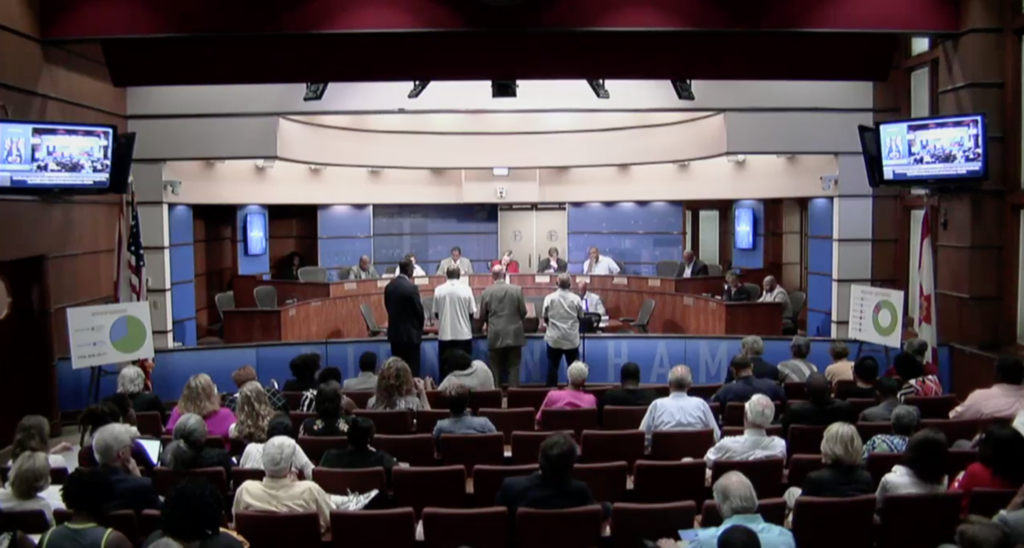
Birmingham Mayor Randall Woodfin presented his budget plans for 2018-2019 last Tuesday, which included cutting funding for neighborhood organizations, asking them to instead partner with the city and spend money they already have in the bank. Woodfin made the cut in order to prioritize neighborhood revitalization by increasing funding for demolition and weed abatement, sidewalks and paving roads. “Over the last several years, more than $3.7 million in tax dollars have piled up in those association accounts untouched,” Woodfin told city councilors last Tuesday. “We’ve redirected this year’s allocation to directly invest in neighborhood revitalization…. We challenge the neighborhood associations to work with us, with the existing funds they have to address weed abatement, demolition and other neighborhood improvements.” On Monday, the Birmingham City Council held a public hearing allowing citizens and organizations to voice their opinions about the proposed plan. There, neighborhood association officers from across the city stood up requesting to be included back in the budget. Bettina Byrd-Giles, chair of Birmingham Sister Cities — a non-profit organization dedicated to fostering international and intercultural relationships as well as community relations in order to facilitate foreign direct investment and economic development in Birmingham — stood making such a request. “We have been defunded. Our budget has been cut in the budget that presented on Tuesday… I’m here asking that you reconsider and put us back into the budget,” Byrd-Giles said before the council. Mary Lynn Bates, vice president of Bridge Ministries — a faith-based non-profit that fights homeless and serves those in need — said the funding for their organization was also cut. “I think the city needs all the help it can get to help people who are in crisis and we have a lot of expertise on that and it’s a shame if the partnership doesn’t go forward,” said Bates. Council President Valerie Abbott said the council is not in 100% agreement with Woodfin’s proposed budget, which is why they’re holding meetings to hear from those affected by the cuts. “You want to know what regular people think and a lot of the groups that were here to bring to our attention that they had not been funded,” explained Abbott. “We’ve been hearing from a lot of their supporters and there were a lot more people in the audience than spoke, so obviously a lot of people had supporters out there.” The 2018-2019 budget will go into effect July 1. Video of the full hearing below:
Birmingham, Huntsville rank among America’s top 100 places to start a career

With graduation season upon us and employers planning to hire four percent more graduates from the Class of 2018 than they did from the Class of 2017, the personal-finance website WalletHub on Tuesday released its report on 2018’s Best & Worst Places to Start a Career. According to the report, which lists the top 182 U.S. cities to start a career, two Alabama cities made it into the top 100 places to start a career: Birmingham ranked 68th and Huntsville 76th. In order to determine the best cities in which to launch a career, WalletHub analysts compared the 182 cities — including the 150 most populated U.S. cities, plus at least two of the most populated cities in each state — across two key dimensions, “Professional Opportunities” and “Quality of Life.” Birmingham has far more professional opportunities than Huntsville, coming in 33rd place with Huntsville ranked 88. But when it comes to quality of life, Huntsville surpasses Birmingham. Ranked 77th, while Birmingham takes home an abysmal 158th. Meanwhile, Mobile, Ala. was ranked among the worst cities studied, coming in 172nd place — ranked 160th for professional opportunities and behind Birmingham on quality of life, ranked 171st. See how Birmingham and Huntsville compare to the rest of the country: Source: WalletHub
In special election to replace Micky Hammon, single digit turnout expected

A special election is being held in Morgan and Limestone counties Tuesday to replace former Rep. Micky Hammon for the Alabama House District 4 seat. Election officials say they expect voter turnout to be in the single digits. “I think people are just set on June 5 and I think they’ve just forgotten about this one,” chief clerk in the Morgan County Probate Office, Kate Terry told Decatur Daily. Hammon was removed from office last year after pleading guilty to using campaign funds for personal expenses in September. He was then ordered to forfeit nearly $51,000 for reimbursement to those who had donated to his campaign. Hammon was then sentenced to three months in prison, and three years supervised released for felony mail fraud in February of this year. Three candidates, Democrat Juanita Allen Healy, Republican Parker Duncan Moore and independent Polan “Pete” Willis Jr. are seeking to replace hammon. The winner of the special election must immediately begin campaigning again for the November election, to win a full four-year term. Moore will face Tom Fredricks in the June 5 primary, although he defeated Fredricks in the special February Republican runoff. Healy is chairwoman of the “One Decatur” comprehensive plan project, and has been a Decatur resident for 13 years. Lifelong Decatur resident, Moore is also a member of the Development Council with Huntsville Hospital, and is currently the North Alabama Marketing Representative for Encore Rehabilitation. Independant Willis is sending in a petition to get on the ballot. A business owner, Willis has operated an Aerospace Manufacturing firm in Priceville since 1982.

